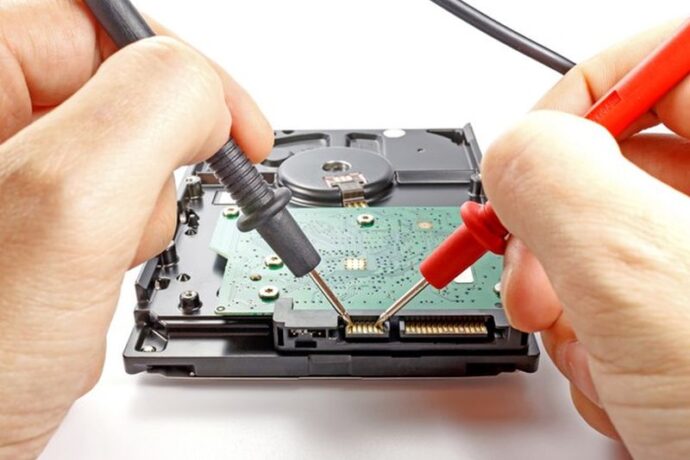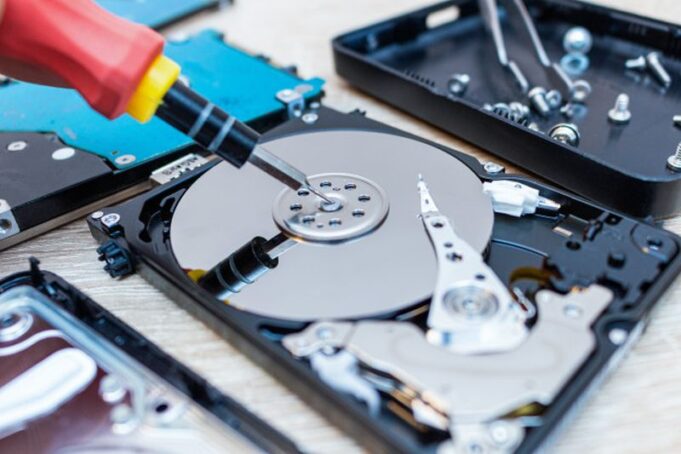How often have you accidentally deleted a file only to realize later that you still needed it? This kind of thing happens all the time, but sometimes the consequences can be severe. Deleting an important financial document could make tax season far more stressful, while deleting accounting records for a business could land the company in serious legal trouble.
Data recovery services can help in these scenarios. They can restore data that you’ve accidentally deleted. However, there are certain caveats.
In this guide, we’re going to take a look at how data recovery works and when you can and can’t use hard drive data recovery services. Are you ready to learn more? Then read on and visit this website for more information.
How Does Data Recovery Work?
To understand how data recovery services actually work, we need to first consider how disk drives store data. There are two main types of disk drives and they both store data slightly differently.

How Does a Hard Drive Work?
A hard drive is the term given to a traditional disk drive, in contrast to an SSD. These drives are made up of several components, namely:
- The platter
- The spindle
- The read/write arm
- The actuator
The way that they work is actually quite simple. A read/write arm, also known as a “head” will write ones and zeros to the disk, storing your data as small magnetic markings that it can piece together to recreate the file.
It doesn’t actually make any marks on the disk. Instead, it magnetizes the drive in a certain way that the head can read back later.
The actuator controls the read/write arm, while the spindle spins the hard drive disk up and down as required. If you’d like to think of it a different way, you can think of a hard drive as being almost like a vinyl record. The head is like the needle, reading the grooves that it’s previously laid down on the disk.
How Does an SSD Work?
The components of a solid-state drive (SSD) are far simpler. It has no moving parts and is a block of memory, which can then be charged as 1s or 0s by electrons, rather than by a magnetic head.
This makes SSDs far faster than hard drives, while still allowing for vast amounts of storage. Similar principles to SSDs also apply to the flash memory that you’ll find in phones.

What Happens When You Delete a File?
When you delete a file, it doesn’t vanish from your disk right away, no matter whether it’s an SSD or a hard drive. When you delete a file, your disk drive removes the file’s entry from something called the “master file table reference,” which means that it no longer knows where the file is located. This also marks the area where that file was as free space.
Think of it like a filing cabinet full of folders, all neatly labeled. The labels let you easily find what you’re looking for, and when you take the label off a folder, you’re free to put anything else in there and relabel it.
What this means is that the data on your hard drive hasn’t gone anywhere, at least, not immediately. However, if you leave it too long, you won’t be able to recover it.
Data Recovery and Its Limits
Data recovery is a tremendous boon for those who have accidentally deleted files. However, after a certain point, even the best data recovery services company won’t be able to restore your data.
When your drive writes ones and zeros over a space that was previously occupied by other data, the markings from the old data get less and less distinct. This is why, if you want to securely destroy any data on a hard drive, you need to overwrite the disk with random data five or more times.
However, if you’ve recently deleted a file and want it back, the chances are far higher of you getting your data back.

What Successful Data Recovery Looks Like
There’s no singular metric that describes “successful data recovery.” If you have a device where all the data has been overwritten multiple times, successful data recovery may mean recovering a handful of important files.
When you have a device where the data hasn’t been significantly disrupted, a successful data recovery could mean the complete restoration of all lost files.
The Utility of Data Recovery
Data recovery can be staggeringly useful for businesses and for individuals, too. Despite being told to do so by numerous sources, a lot of us don’t actually backup our files. This means that if we lose our files, they’re gone for good unless we hire data recovery services to help us.
It can also help with business continuity. If you suffer a disaster of any kind, getting your business back to work is your top priority, and data recovery can help you with this, even if you’ve backed up your data recently. You probably won’t have backed it up that day, which means that you could lose days of productivity unless you can restore your data.
Then there’s the simple fact that data recovery represents an insurance policy against mistakes. It’s easy to accidentally delete a file, only to realize that you need it later. Data recovery can help you get back on track.
Consider Using Data Recovery Services
If you’ve suffered a data loss of any kind, you should definitely consider using data recovery services. These companies may well be able to restore your files, even if time has passed.
For more interesting and helpful content like this, check out our other articles!















